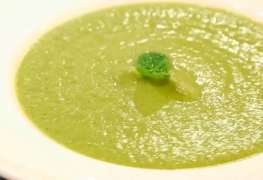 The cheeseburger is far from dead (for meat eaters, that is), but chicken has been the clear winner over beef for decades now. Although plant-based diets continue to grow in popularity, poultry still reigns as the primary source of protein in the United States,and for good reason: Chicken is packed with vitamins and minerals, is low in calories, its nutrients have been linked to a reduced risk of cancer and heart disease, and it has far lower levels of cholesterol and saturated fat compared to red meat.
The cheeseburger is far from dead (for meat eaters, that is), but chicken has been the clear winner over beef for decades now. Although plant-based diets continue to grow in popularity, poultry still reigns as the primary source of protein in the United States,and for good reason: Chicken is packed with vitamins and minerals, is low in calories, its nutrients have been linked to a reduced risk of cancer and heart disease, and it has far lower levels of cholesterol and saturated fat compared to red meat.
And it doesn't hurt that it tastes great—especially when it's prepped with a little TLC before cooking. You don't have to be an accomplished chef to get on the marinade train—with some simple tips and a recipe, anyone can turn a boring breast into an exciting, flavorful piece of chicken.
What's a Marinade?
A marinade is a mixture of herbs, spices and liquids (typically oils, wine or vinegar) in which meat, poultry or vegetables are steeped (marinated) for a period of time before grilling, roasting, slow cooking or sautéing. In addition to enhancing the flavor of the meat, a marinade can help make the chicken more tender and juicy, which is especially important for grilling. Plus, marinades can also have their own health benefits.
"Lots of seasonings and meat rubs are extremely high in sodium, so using marinades can be an excellent way for people on low-sodium diets to flavor their foods," points out Summer Yule, MS, RDN.
In addition, Judy Barbe with LiveBest points out that marinades have also been shown to reduce heterocyclic amines (HCAs), which have been identified as cancer-causing compounds that form during the cooking process.
Tips for a Safe & Successful Marinade
Choose your vessel. Some cooks prefer to marinate their chicken in a zip top bag. "I like to add all the marinade ingredients, then shake the bag around a bit to get them combined, then put the chicken in and get it coated," says Kathryn Doherty from Family Food on the Table. This also eliminates the need for clean-up, as you can toss the bag in the trash when you're finished. (Doherty recommends putting the bag in a bowl while it sits in the refrigerator, as a fail-safe in case of leakage.) For a more eco-friendly option, you can marinate your chicken in a container made of glass, stainless steel or food-safe plastic, or opt for reusable food storage bags (just be sure to clean according to manufacturer's directions).
Keep it cold. For food safety, chicken should always marinate in the refrigerator, not on the countertop. If you're using a container rather than a bag, cover the top. After marinating for anywhere from one to 24 hours, uncooked chicken can be safely stored in the fridge for up to two days, according to Foodsafety.gov. If you're starting with frozen chicken, thaw it on a baking sheet in the refrigerator before adding the marinade.
Don’t rinse it. Barbe warns that spraying water on marinated chicken can cause raw juices and bacteria to spread in the kitchen. Instead, simply transfer the chicken directly to the cooking vessel and let the heat do its job of killing the bacteria.
Never reuse a marinade. If you steep your chicken and then have uncooked marinade left over, it should be disposed of and never re-used. "Once the marinade has come into contact with the uncooked chicken, it can be a source of foodborne illness," Yule warns. If you want to use some of the marinade to baste the chicken after cooking and before serving, Barbe says to pour 1/4 cup out before adding the raw meat, then use that reserved portion so you don't have to worry about cross-contamination.
Cook and store properly. All poultry should reach a safe, minimum internal temperature of 165°F as measured with a food thermometer, says Barbe. "Check the internal temperature in the innermost part of the thigh and wing and the thickest part of the breast," she recommends. Cooked leftovers can be stored in the refrigerator in airtight containers for up to four days, or frozen for longer periods of time.
Creating Your Own Marinade
Liza Baker with Simply: Health Coaching is a big advocate of making your own marinades at home, as she warns that most of the store-bought ones contain a lot of unnecessary, highly processed ingredients.
The process is easier than you might think. According to Baker, the basic formula for any marinade base is one-part oil to three parts acid (such as vinegar, lemon juice or orange juice). "If you need a lot, use one cup of oil to three cups acid; if you need just a little, use one tablespoon of oil to three tablespoons of acid," she suggests.
Once you have the base, you can add a variety of spices or dried or fresh herbs—Barbe likes to use onion, garlic, chives, shallots or scallions—along with salt and pepper.
Herbs and spices can seem intimidating at first—how do you know what goes with what? Barbe offers some common flavorings used for popular cuisines:
Mexican: cumin, coriander, oregano, ground dried chile peppers (avoid chili powder, which is often a blend) or chipotle chiles in adobo (you can find these canned in the Mexican section of most grocery stores)
Greek: lemon, dill, oregano or even mint
Indian: curry powder (a blend) or a mix of turmeric, cayenne pepper, cumin and coriander
Italian: basil, oregano, fennel
Chinese: ginger, anise, or 5-spice (a blend)
13 of Our Favorite Marinade Recipes
"No Work" Marinated Chicken: Whether you grill, pan fry or broil the meat, this juicy and flavorful chicken makes a healthy dinner that's ready in just 10 minutes.
Baked Chicken Breasts: This simple recipe uses a combination of smoked paprika, garlic powder, salt and black pepper in an olive oil or butter base.
Citrus Cumin Mojo Chicken with Peppers: Citrus and cumin make a bright, fresh chicken marinade inspired by Cuban cuisine. After marinating, cook with bell pepper strips and cubed sweet potato for a rainbow of a meal.
Honey Lime Chicken with Grilled Peach & Corn Salad: Combining olive oil, honey, lime juice, cilantro and garlic, this light, summery marinade doubles as a salad dressing.
Chimichurri Sauce: Made from fresh cilantro and parsley blended with olive oil, vinegar and garlic, this gluten-free marinade is delicious on chicken and vegetables.
Easy Teriyaki Marinade: You’re just four ingredients away from this simple, versatile marinade.
Balsamic Herb Grilled Chicken Marinade: Tangy, herby and bright, this marvelous marinade adds delicious flavor to your grilled chicken rotation.
Tuscan Chicken Marinade: A simple blend of sundried tomatoes, garlic, fresh herbs and Parmesan cheese creates a zesty sauce that will completely transform your dinner.
Spicy Beer Marinade for Chicken: Just a few pantry staples and spices makes a spicy and flavorful marinade for grilling.
Orange Juice BBQ Chicken Sandwiches: The tangy citrus flavor from the orange juice takes the chicken marinade and the BBQ sauce to the next level.
Pineapple Habanero Sauce: Registered dietitian Mandy Enright of Nutrition Nuptials loves this spicy sauce that doubles as a marinade. "The acidity from the pineapple will help tenderize the chicken, and piercing the skin of the chicken with a fork before marinating will also help the flavors get deep into the chicken," she says.
Coconut Lime Grilled Chicken Marinade: This is an easy way to infuse delicious flavor into your grilled chicken so it comes out juicy and amazing.
Balsamic Date Dressing or Marinade: Tangy balsamic and sweet dates make for a flavorful combination in this easy marinade.








Leave a comment